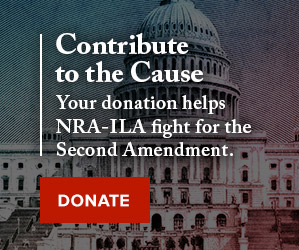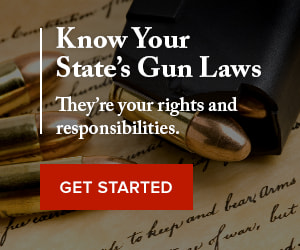BATF’s FORM 4473 BUNGLE
When the Bureau of Alcohol, Tobacco and Firearms (BATF) decided that it needed to change the forms individuals must fill out when they purchase a firearm from a Federal Firearms Licensee (FFL), nobody anticipated that nearly five months would not be enough time to ensure the new forms would be ready and made available to FFLs. But that seems to be exactly what happened this week. And because of BATF’s failure to ensure licensed dealers were supplied with the mandated new forms, countless law-abiding citizens have been unable to exercise their constitutionally-protected right to arms this week, and countless law-abiding FFLs have lost immeasurable numbers of sales due to an inability to conduct their business. By virtue of a bureaucratic bungle that might be laughable if its ramifications did not carry such serious consequences, prospective gun purchasers experienced a virtual national ban on firearm transfers this week.
The problem with the forms—referred to as Form 4473—began in October 2001, when BATF decided some relatively minor changes were required. The changes dealt predominantly with being able to better determine whether or not a non-citizen who wished to purchase a firearm is prohibited from doing so. This, along with Attorney General Ashcroft’s decision last week to utilize Immigration and Naturalization Service’s (INS) records for firearm transfers subject to a National Instant Check System (NICS) check (see last week’s FAX Alert), would help to correct a glaring flaw in the design and implementation of NICS that was ignored by the Clinton-Gore-Reno Department of Justice (DOJ). These changes were intended to ensure anyone in the U.S. illegally would be rejected if he attempted to purchase a firearm from an FFL. But when BATF failed to deliver the forms by February 19, 2002—a deadline the agency set for itself—what resulted was confusion, frustration, and a near total cessation in the legal, retail transfer of firearms across the country. The forms FFLs had prior to February 19 became useless that day, and firearm dealers suddenly discovered they could not transfer firearms to law-abiding purchasers. And while it is still unclear exactly why BATF was unable to supply FFLs with the proper new forms in time, even more unsettling is why BATF was unable to identify the fact that it would not meet its own deadline, and then implement measures to ensure the problems gun purchasers and gun dealers experienced this week did not occur. BATF officials even went so far as to assure NRA staff during the SHOT Show earlier this month that it would meet the deadline to deliver the new forms.
But the failure to deliver the forms, and the failure to identify this problem as the deadline approached, aren’t the only problems. Once dealers discovered they could not use the old forms, and new forms were not available, BATF’s "solutions" created even greater confusion. FFLs have been told for years that they may not use photocopies of a Form 4473. But these same dealers were told this week that they would either be faxed a "temporary" copy of the new form, or they could print one off the BATF’s website, and then photocopy as many as they needed until BATF could deliver the actual forms. And to make matters worse, the "temporary" forms are identified by a number that has confused many dealers into thinking they can use their old forms.
Rest assured that NRA has weighed in at the appropriate levels of the Bush Administration and with members of the U.S. House Treasury, Postal, and General Government Subcommittee, which has scheduled a hearing for BATF. Be sure to contact your federal lawmakers to express your outrage over the problems created by BATF’s inability to meet its own deadlines. You can reach your U.S. Senators by calling (202) 224-3121, and your U.S. Representative by calling (202) 225-3121. For additional contact information, use our "Write Your Reps" tool.
In the meantime, BATF states that retailers can now download the new Form 4473 from the BATF’s website, and they have temporary approval to use photocopies of the form—identified as the "10/2001 version of the original ATF Form 4473 Part I, including instructions,"—until such time as a supply of original forms is received, or until April 20, 2002, whichever occurs first. When using a photocopy of the new 4473, dealers must provide their nonlicensed firearms customers with both the form and its instructions while they complete the form. The completed forms and instruction sheets must be retained in dealers’ records for the time period specified in 27 CFR 178.129.
To download the new form, go to http://www.atf.treas.gov/forms/4473instruction.htm.
NEXT STEP
<align=center>IN ATTACK ON PRIVATE TRANSFERS
It has always been clear to the pro-Second Amendment community that the attacks on gun shows are merely the first step in an orchestrated effort to outlaw all private transfers of firearms—including those between close friends, neighbors, or even relatives—and impose a national firearm licensing and registration scheme. A small group of state-level anti-gun organizations held a press conference on Thursday to publicly announce the next phase in this campaign. The group calls itself the "National Campaign to Close the Newspaper Gun Ad Loophole," and seeks to bring an end to law-abiding citizens using newspaper ads to legally sell their lawful property—firearms.
This coalition masquerades as a "grassroots" movement, although it is actually a handful of affiliates of the gun-ban lobby formerly known as HCI, and is little more than a collection of anti-gun extremists that receives funding from, and aligns themselves with, national anti-gun organizations. NRA will closely monitor the development of this campaign, and we will be sure to report any significant developments. The coalition’s timing is certainly interesting, as their effort to curtail the private transfer of firearms occured at the same time BATF was curtailing transfers through FFLs.
A LOOK AT THE STATES
ARIZONA
On Tuesday, February 26, at 1:30 p.m. in HHR 4, the Committee on Public Institutions and Rural Affairs will hold a hearing on HB 2346, "Taxing Background Checks on Firearms Purchasers." This bill authorizes an unspecified tax to be imposed on all firearm purchases. Call Representatives Jim Kraft (R-18), Jim Carruthers (R-5), Mark Clark (D-7), Sylvia Laughter (D-3), and Al Tom (D-3) at (800) 352-8404 and ask them to vote "NO" on HB 2346. In addition, the NRA-backed Range Protection bill, SB 1008, is expected to be brought up for a floor vote in the Senate. Call your Senator at (800) 352-8404 and urge him to vote for SB 1008.
GEORGIA
Attorney General Thurbert Baker
(D) announced last week that the state will now recognize Right to Carry permits issued by Alabama and Wyoming. In exchange, these two states will also recognize Georgia permits.
MISSOURI
HB 1729
, the NRA-backed Right to Carry bill, has moved out of committee and will now go before the full House for a vote. Call your Representative at (573) 751-3659 and urge him to support HB 1729.
OHIO
The House Civil and Commercial Law Committee will hear opponent testimony (last week was proponent testimony) on HB 303, firearms preemption legislation, on Wednesday, February 27, at 9:30 a.m., in Room 114 of the Statehouse. Call your Representative at (614) 466-3357 and urge him to support HB 303.
RHODE ISLAND
A hearing on H 6866 has been scheduled in the House Judiciary Committee for Thursday, February 27. The measure, introduced by Rep. David Cicilline (D-Providence), seeks to set up a "Gun Injuries Task Force," run by the R.I. Dept. of Health. Language in H 6866 states that "the ongoing and systematic collection, analysis, and implementation of outcome-specific firearms injury data is essential to the planning, implementing and evaluation of sound public policy." This would give anti-gunners the ability to manipulate stacked statistics—rest assured no statistics regarding defensive uses of firearms are planned—to promote their gun-ban agenda. Contact committee members immediately and urge them to oppose H 6866. For a list of committee members and their numbers, please call the Grassroots Division at (800) 392-8683.
SOUTH DAKOTA
HB 1129
, a bill establishing reciprocal agreements to allow Right to Carry permit holders from other states to lawfully carry firearms concealed in South Dakota, and vice versa, is on the governor’s desk. Please contactGovernor Bill Janklow (R) at (605) 773-3212 and urge him to sign HB 1129.
TEXAS
Early voting for primary elections in Texas begins on Monday, February 25. NRA members who would like information on NRA-PVF-endorsed candidates in the primaries can call NRA-ILA’s Grassroots Division at (800) 392-VOTE. You can find information on early voting locations by calling your county clerk’s office.
WISCONSIN
In an unprecedented advancement for the right of Wisconsin’s citizens to carry concealed firearms for self-defense, the Assembly Committee on Criminal Justice passed AB 675, the "Personal Protection Act," on a vote of 10-4. AB 675 now moves to the full House for consideration. Call (800) 362-9472 to thank the following Assembly members for their votes in support of AB 675: Scott Suder (R-69), Mark Gundrum (R-84), Garey Bies (R-1), Jeff Fitzgerald (R-39), Suzanne Jeskewitz (R-24), Frank Lasee (R-2), Gabe Loeffelholz (R-49), Carol Owens (R-53), Wayne Wood (D-44), and Gary Sherman (D-74). A special thanks goes out to Committee Chairman Scott Suder, who sponsored the bill and ensured it to came to a vote, and Assemblyman Scott Gunderson (R-83), who co-sponsored the legislation and testified in favor of the bill. Senator Dave Zien (R-23) also deserves kudos for being a tireless advocate of our right to self-defense.

















